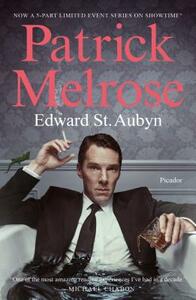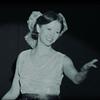Take a photo of a barcode or cover
While the gamut of each instalment is somewhat uneven, the macro story that comes together was near perfect, for me. Unlikable, sometimes abhorrent characters, biting wit and humour, tap into a surprisingly relatable human experience. It takes something extra, typically, for me to care at all about rich people, and this has “it”. All good fiction tends to be about many things, so much so that when people ask what it’s about, I tend to shrug and say Everything, because narrowing it diminishes it.
There’s a pleasant symmetry that comes together from first to last books as well. The ending fits what it is. It becomes more funny, somehow, despite it becoming more heartbreaking, as the vividness of which a particular character is drawn, and is one of the closest things to as vile a person as I could imagine. Fitting that he be in the 1% then, but not exclusionary to it, since everything that makes him terrible could be found in another man of another background, but there’s an extra dash of disgust when there’s a helping of privilege and lack of accountability.
Patrick too, has a surprisingly engaging arc, despite the matter-of-fact writing style that cuts and splays every character. No one is safe from the writer, least of all Patrick. The psychology behind their behaviour is tragic because the reader gains so much insight about them they will never achieve. The reality of a person is in so much of what their perception is by others, which is why a more solipsistic work centred on Patrick and company wouldn’t work.
There’s a pleasant symmetry that comes together from first to last books as well. The ending fits what it is. It becomes more funny, somehow, despite it becoming more heartbreaking, as the vividness of which a particular character is drawn, and is one of the closest things to as vile a person as I could imagine. Fitting that he be in the 1% then, but not exclusionary to it, since everything that makes him terrible could be found in another man of another background, but there’s an extra dash of disgust when there’s a helping of privilege and lack of accountability.
Patrick too, has a surprisingly engaging arc, despite the matter-of-fact writing style that cuts and splays every character. No one is safe from the writer, least of all Patrick. The psychology behind their behaviour is tragic because the reader gains so much insight about them they will never achieve. The reality of a person is in so much of what their perception is by others, which is why a more solipsistic work centred on Patrick and company wouldn’t work.
dark
sad
dark
emotional
sad
slow-paced
Plot or Character Driven:
Character
Strong character development:
No
Loveable characters:
Complicated
Diverse cast of characters:
No
Flaws of characters a main focus:
Yes
*3.5
After spending 6 months struggling my way through the entire Patrick Melrose series, it’s hard for me to admit that I didn’t enjoy it nearly as much as I had hoped and expected from the outset.
While all the books are highly witty and intelligently written, and gives a good view into the minds of ‘old money’, I never got to sympathize entirely with Patrick. At the same time there wasn’t much actual ‘action’ in at least 2-3 of the books, and after a while it was a bore to read the long pseudo-philosophical conversations of the main protagonist and the various people in his life (none of whom he cares that much about). Maybe it was also the sadness of Patrick’s life both as a boy, young adult and parent that made me not enjoy the books as much as they probably deserve.
After spending 6 months struggling my way through the entire Patrick Melrose series, it’s hard for me to admit that I didn’t enjoy it nearly as much as I had hoped and expected from the outset.
While all the books are highly witty and intelligently written, and gives a good view into the minds of ‘old money’, I never got to sympathize entirely with Patrick. At the same time there wasn’t much actual ‘action’ in at least 2-3 of the books, and after a while it was a bore to read the long pseudo-philosophical conversations of the main protagonist and the various people in his life (none of whom he cares that much about). Maybe it was also the sadness of Patrick’s life both as a boy, young adult and parent that made me not enjoy the books as much as they probably deserve.
These stories, so rich, painful, and incredible, with such a voice, inspired me to try writing.
2.5. Niektóre fragmenty były świetne, ale często był to niestety grafomański bełkot.
Four short novels spanning the life of a dysfunctional upper class family - not having to work leaves lots of time to screw up relationships, take drugs etc. and yet the author somehow manages to survive and become much more human by the end (still screwed up but trying to not make the same mistake with his kids).
A dark, devastating portrait of upper-class Britain and lousy parenting. The prose is sharp and ironic, the insights sometimes painful in their accuracy and honesty. The last book, especially, was way too close to home for me. Even so, I recommend it, but not for those who are looking for a happy story or are looking for sugar-coating.
I read the four books in this collected volume back to back only partly because I wanted to find out what happens to Patrick, mostly because the writing itself is more than a little addictive – clever, insightful, funny, and very dark. I initially doubted I would enjoy this series, although it came highly recommended. The suffering of rich people has, I feel, been given more than enough coverage in literature. It is inevitable, given that the ruling, wealthy members of society tend to be those with access to education, so it follows they are the ones who have the tools, the time, the confidence and so on to write novels, which accounts for the disproportionate amount of books by and about the wealthy. Often, the self-absorption and lack of perspective displayed in such novels gets on my nerves but in this instance, the quality of the writing won me over within a few pages. The characters depicted in these novels are seriously upper-class, the old aristocracy. I guess these people still exist but I don’t think I’ve ever met one, so they were completely alien to me and lent reading the books that detached but fascinated feeling I might experience reading about some lost tribe of the Amazon. These are human beings, but not as I know them. The majority of the characters are so despicable it made me very glad they’re not part of my experience. The first book covers Patrick’s early childhood and the devastating incident which shapes much of his subsequent psychology, although I did suspect that, even without that, his parents were sufficiently awful that it would’ve been unlikely he’d have emerged without serious problems. The second book details his drug addiction. The dissection of the nature of addiction is merciless and contains breath-taking stream of consciousness pyrotechnics . I didn’t enjoy the third book as much as there is simply not enough Patrick and far too much of a cast of over-privileged psychopaths. The writing was still excellent but I found it difficult to care about most of the other characters. It was like visiting a zoo full of strange animals attacking each other and hurting themselves. The fourth book, Mother’s Milk was full of insight from each viewpoint taken. I was most impressed with how accurately and perceptively he handled the emotional landscape of motherhood from Patrick’s wife, Mary’s point of view. I will certainly pick up a copy of the final volume, At Last.
I struggled getting into the first two books (Never Mind & Bad News), but I'm so glad that I pushed through because the last two (Some Hope & Mother's Milk) I couldn't put down. St. Aubyn's writing is so unique and brilliant. There's a gem on every page that I would have to re-read and sit with because his observations and dry view of the world are too great to skim through.



